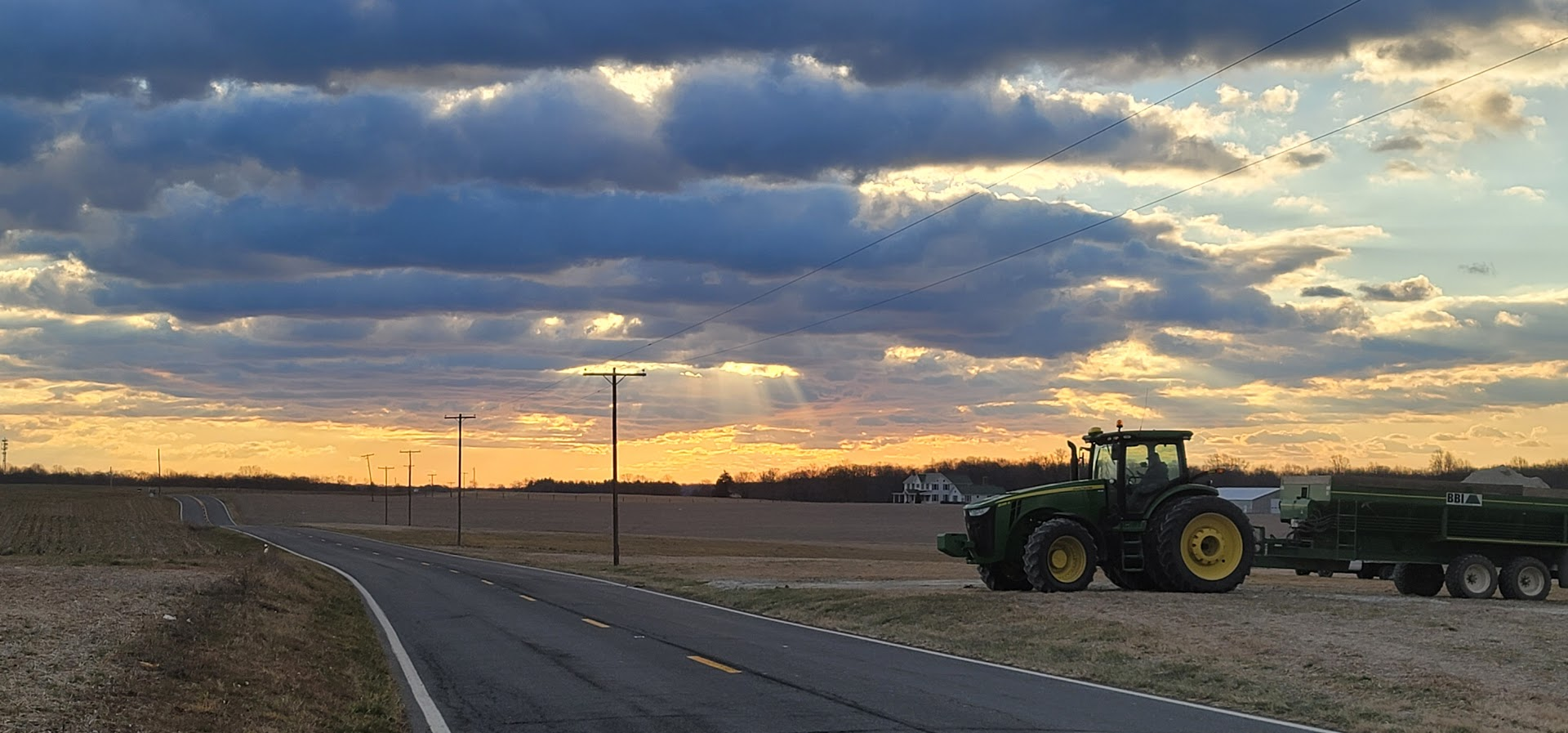
Great news! On Tuesday, the Montgomery County Council finally passed ZTA 20-01, the long-debated zoning amendment to open the Agricultural Reserve to non-accessory solar. Critically, six Council members - Craig Rice, Andrew Friedson, Gabe Albornoz, Nancy Navarro, Sidney Katz, and Will Jawando - stood firm in favor of amendments supported by agricultural, environmental, and food security stakeholders to protect the Ag Reserve's highest-quality soils that are actually farmed and the legal structure that protects it as a whole. Watch the highlights of their remarks here.
The road to the passage of ZTA 20-01 has been long and bumpy. When the bill was first introduced, we had serious concerns, and submitted testimony alongside the Audubon Naturalist Society detailing them: the potential impact of the bill on the County's agricultural economy, especially on renting farmers; the lack of coordination between this action and the County's developing Climate Action Plan and new Master Plan; specific problems about steep slopes, wetlands, forest cover, high-productivity soils, and pollinator protections; and the lack of a "Smart from the Start" framework for siting solar in Montgomery County, which could analyze whether and how much solar development on agricultural land was truly necessary and promote solar development on more optimal land like brownfields and parking lots. Given the intense debate around the proposal, the County established a Work Group of stakeholders to evaluate potential changes to the bill. A few of our concerns were addressed by the consensus of the Work Group, but the most significant ones were not.
Four of the eight members of the Work Group, representing the agricultural and conservation sectors, proposed two critical changes which were not accepted by the other members of the Work Group: to make non-accessory solar a Conditional Use, in line with other utility projects in the Ag Reserve, and to reserve Class II soils, the most productive soil type that's actually farmed on at significant scale in the Ag Reserve, for agriculture. We thought those were sensible and necessary amendments to the bill, to facilitate solar development while still preserving the Ag Reserve - and we weren't alone. Sixty-two local and state environmental, agricultural, food security, land use, and climate justice organizations signed on to a letter to the Council urging them to accept these amendments to the bill. Four weeks ago, the majority of the Council voted to accept these two amendments, and this week, the Council finally voted to pass the bill with the amendments intact.
This will meaningfully increase Montgomery County's capacity for solar generation, while protecting the Agricultural Reserve and the important economic, environmental, and food security benefits it brings to the County. The legislation increases the amount of accessory solar farmers can have on their farms up to 200%, meaning farmers can produce more than enough solar power for their own use and profit by selling it back to the grid. And it opens significant acreage for community solar on soil classes III and higher (the higher the soil class, the less productive for farming). Although some specific theorized solar projects on class II soils (again, the most agriculturally productive soils farmed at scale in the Ag Reserve) continue to be prohibited under this new bill, just as they were before, mapping by the Montgomery County Department of Environmental Protection shows that for the 1-2 megawatt community solar projects allowed under this legislation (which take 5-15 acres) there are 445 properties on soil classes III-VIII that could potentially host community solar projects: over 4,400 acres in total.
This is a great victory for both agriculture and for solar, but our work is far from done. There's enormous opportunity for climate activists across the County to work to increase both accessory and community solar projects on farms in the Ag Reserve and elsewhere in the County, and to support farmers in gaining access to affordable land, developing capacity to grow local foods, and incorporating regenerative agriculture practices on their farms. And we'll need to stay vigilant for future proposals that threaten the Ag Reserve - as we and partners across the County have done for four decades and counting. But for now, thank you to Montgomery Countryside Alliance and Sugarloaf Citizens Association for their leadership and close collaboration on this issue, and to all of the individuals and organizations who acted to preserve the Ag Reserve.


